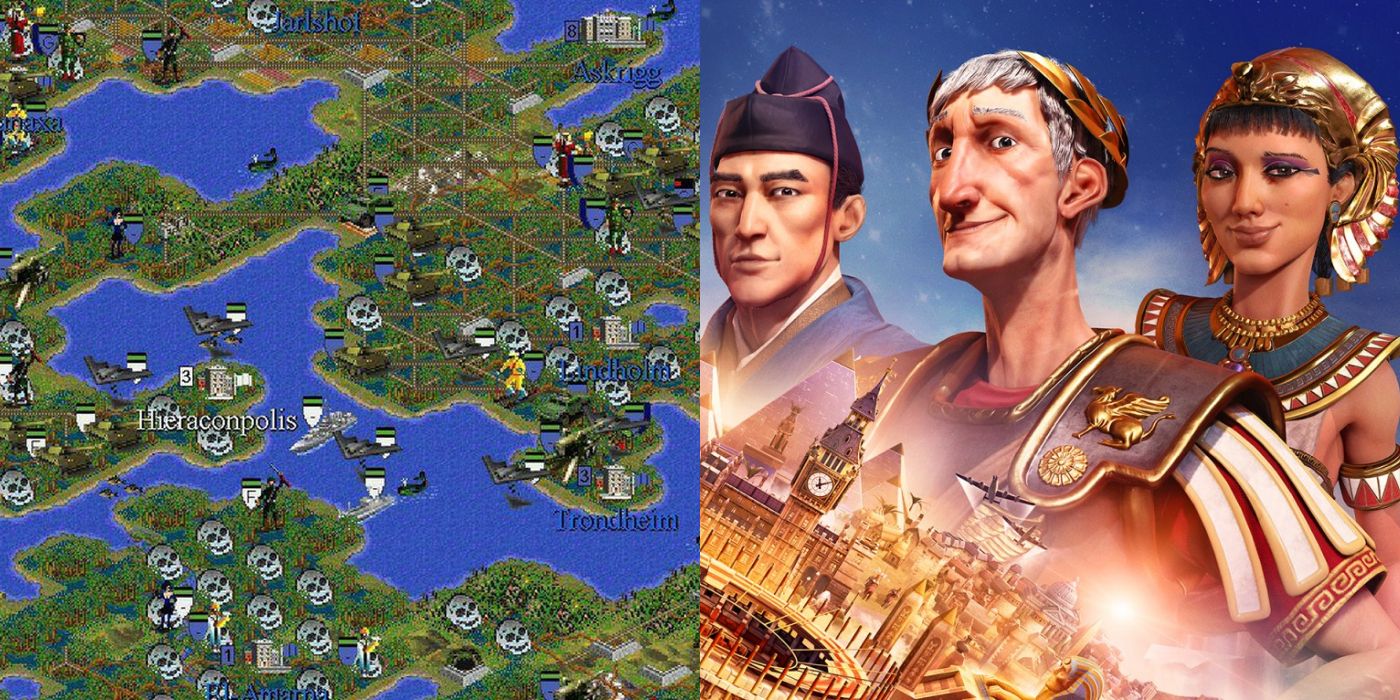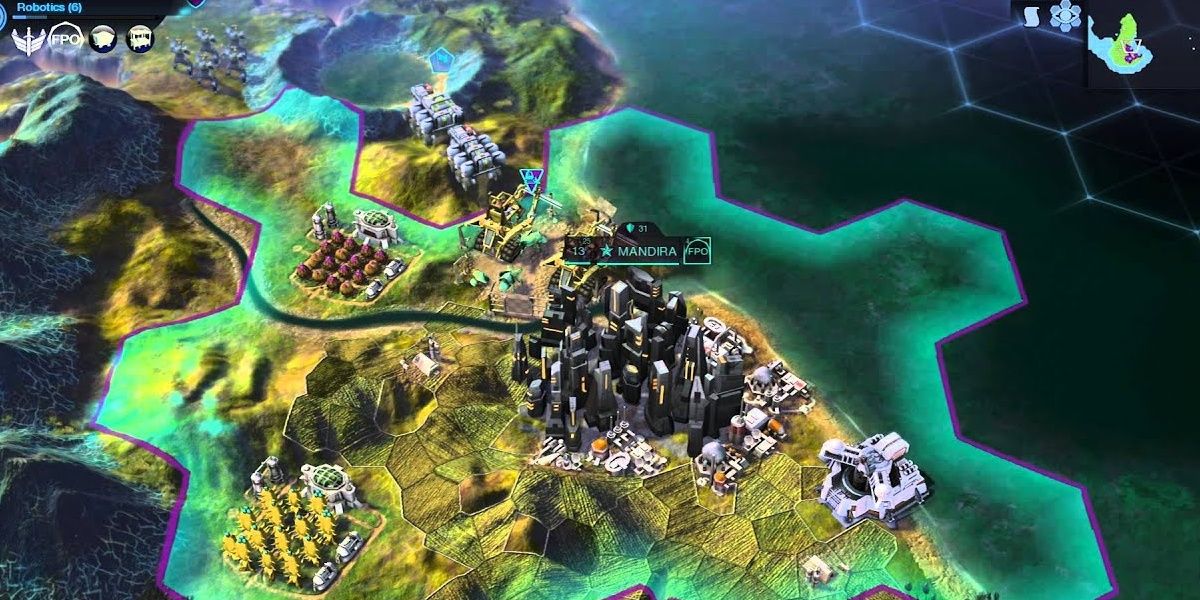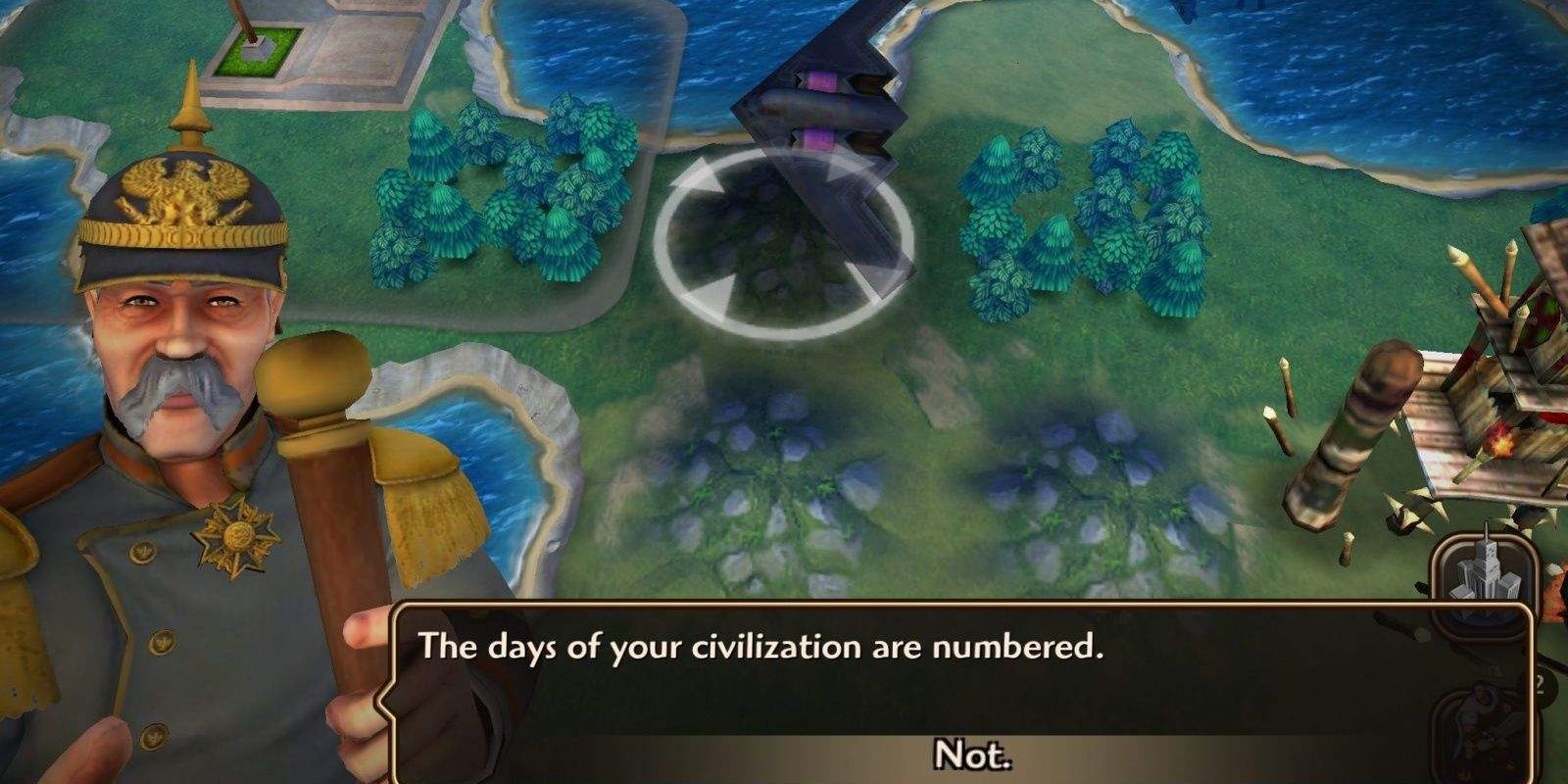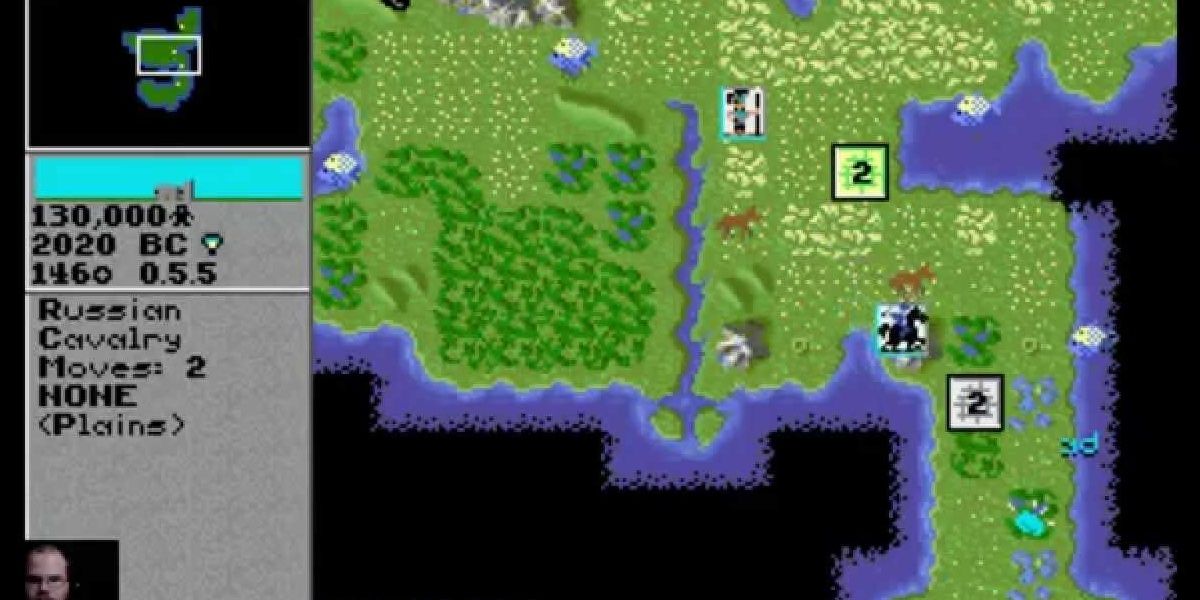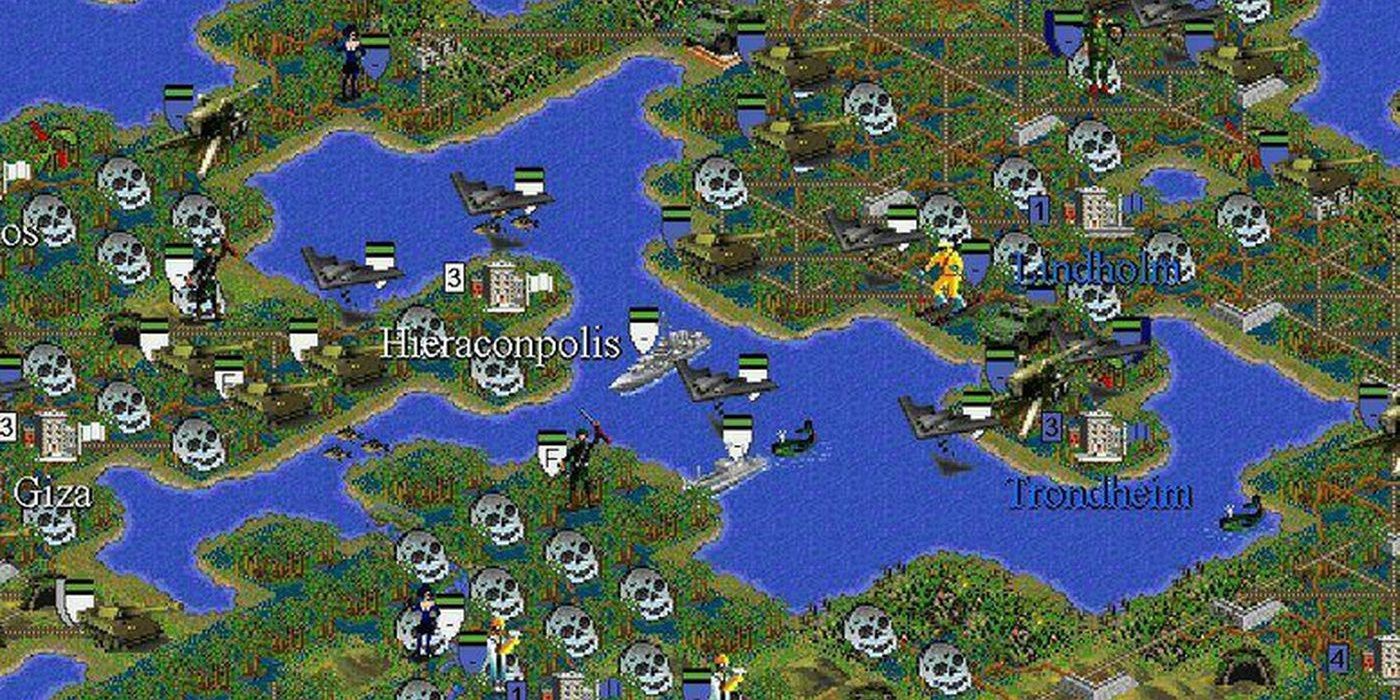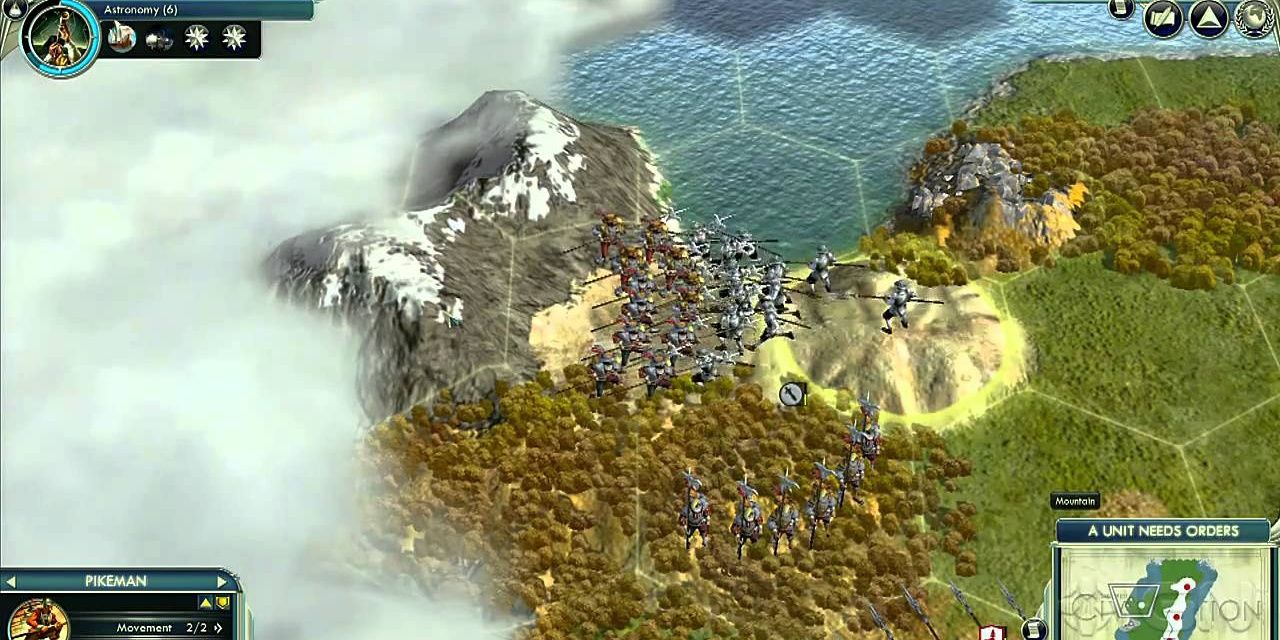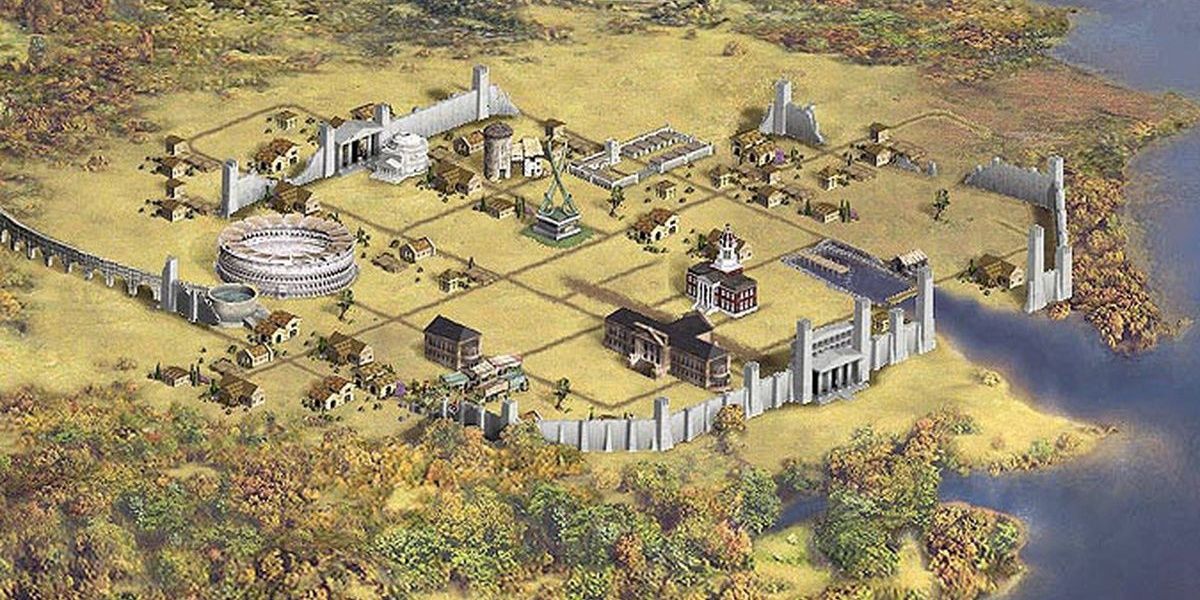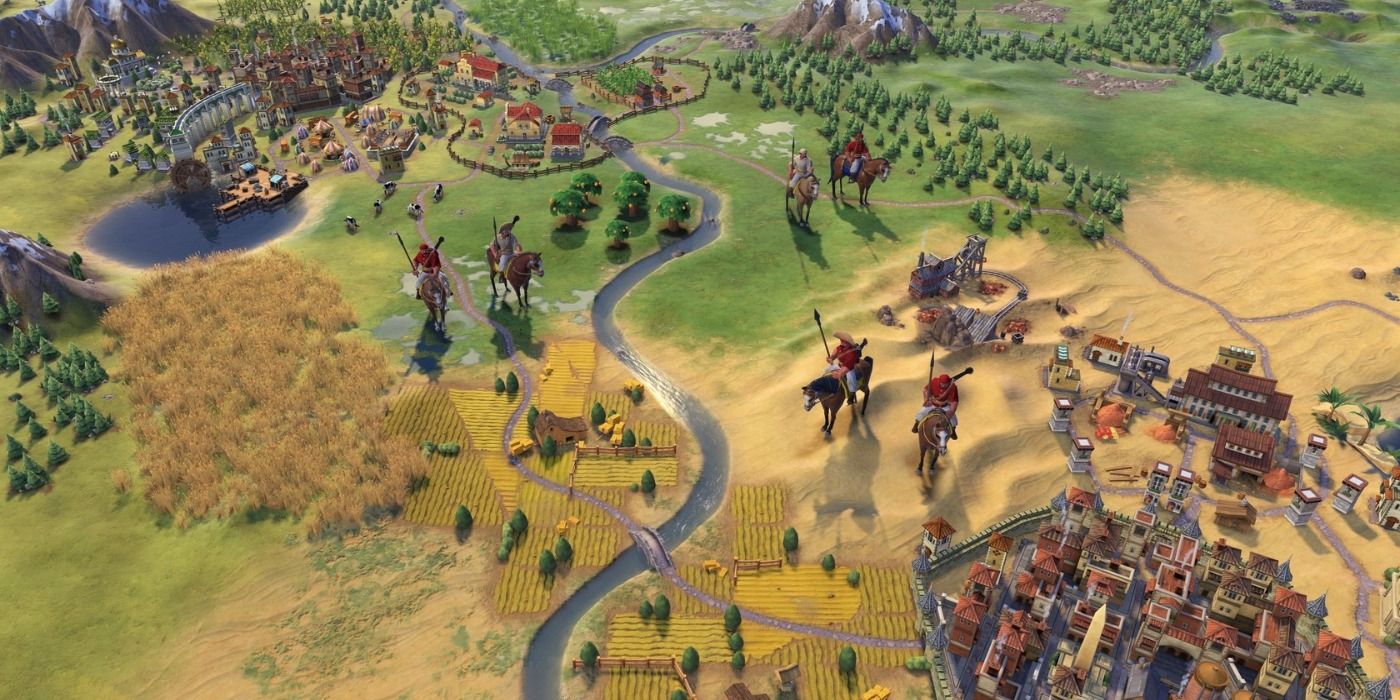Canadian-American video game designer and developer Sid Meier helmed the creation of the 1991 turn-based strategy video game Civilization. Since then, it has spawned an acclaimed franchise that arguably makes for the best strategy game series along with Age of Empires. Along with the six games, Civilization includes tie-ins like a variety of expansion packs, two board games, and spin-off games.
The gameplay includes establishing a civilization from scratch in time periods as diverse as prehistory and the future. Players can grow their settlements via military conquests and technological developments. Most of its settings are historically accurate, representing the socio-political and religious contexts of each timeline.
Civilization: Beyond Earth (2014)
The Civilization franchise's obsession with the Alpha Centauri star system was evident in Sid Meier's non-canonical 1999 game Alpha Centauri that was set in the 22nd Century. Developed in the same vein, Beyond Earth plays out as a spiritual sequel furthering the sci-fi concepts of the game.
Unlike other games in the series, Beyond Earth is solely set in the distant future with players colonizing other planets as Earth has turned unhabitable. Instead of historical leaders, choices are made on the basis of particular space expedition sponsors. Players can rely on specific space vehicles to land on planets and create customizable civilizations. An extension pack called Rising Tide improved the diplomacy features and introduced 'floating cities' in its water gameplay.
Civilization Revolution (2008)
A majority of Civilization games either end with the space race or complete domination over others. Civilization Revolution paved the way for two more victories. The player could either form a United Nations Wonder (after capturing 20 great personalities/wonders) or a World Bank Wonder (after obtaining 20,000 gold units). The leaders that one can choose include historical greats such as Napoleon, Cleopatra, Julius Caesar, and Abraham Lincoln.
Apart from consoles like the PlayStation 3, and Nintendo DS, Civilization Revolution was also available on iOS and Windows Phone.
Civilization (1991)
Following the success of games like Railway Tycoon and Pirates, Sid Meier crafted his magnum opus for MS-DOS on PC. However, given its cult status, Civilization was later ported to other platforms like the Sony PlayStation and Super NES. A major success for the developer and publisher MicroProse, the game emerged as a trendsetter in the strategy genre.
Starting from 4100 BC, players can control civilizations and build alliances with other cultures up to the year 2100. As for winning the game, the victor can either conquer all civilizations or win the modern space race by chartering the Alpha Centauri star system.
Civilization II (1996)
Rather than using the conventional top-down view of the first game, Civilization II relied on a more interactive isometric perspective. Another difference in strategy-building is an increased focus on trade and diplomacy rather than just building military relations. The game was accompanied by the extensions Conflicts in Civilization and Test of Time that provided added campaigns and multiple maps.
The deciding factor for victory in the game is to be the last surviving civilization or outrun other civilizations to reach the Alpha Centauri (much like its predecessor).
Civilization V (2010)
Civilization V marked a major turning point for the franchise as the square-grid maps were replaced with hexagonal grids, adding a more geographically accurate feel to the game. The combat system was changed to allow settlements to defend themselves directly by firing on enemies in the vicinity. This method replaced the erstwhile strategy of stacking military units.
Two expansion packs were released in the early 2010s. A Brave New World added nine new civilizations along with more emphasis on international trade. Some fans complained about Civilization V's lack of religion and espionage elements which were then added with the 2012 expansion pack christened Gods and Kings.
Civilization III (2001)
Unlike the first two games, Civilization III was designed by Jeff Briggs with Meier serving as the director instead. A new feature was the introduction of Culture that could significantly impact a city's expansion. Each city's influence increases with its specific cultural rating. In this way, establishing cultural hegemony over other civilizations can prove to be a peaceful means to expand influences instead of military campaigns.
The game's expansions made significant additions in terms of new historical settings. For instance, the 2003 release Conquests introduced the Mayan, Mesopotamian, Byzantine, and Sumerian civilizations and so on.
Civilization VI (2016)
The 2016 Game Awards Winner for Best Strategy Game, Civilization VI introduced several new civilizations while introducing new leaders for the existing ones. With a visual style heavily reminiscent of the Age of Discovery, the game retained Civilization V's hex-grid maps. The gameplay also made it easier for the cities to be less congested as installations like military units can be built in separate tiles as opposed to the main city tiles.
The game received universal acclaim and is the most recent installment in the game's main series. It was accompanied by two extensions, Rise and Fall and Gathering Storm. Both extensions led to the addition of new wonders, leaders, and civilizations and received equally positive reviews.
Civilization IV (2005)
Apart from the gameplay, Civilization IV is noteworthy for winning a Grammy Award. The fan-favorite title song Baba Yetu was composed by Christopher Tin and performed by Ron Ragin and the Stanford Talism. It went on to earn a Grammy for Best Instrumental Arrangement, the first-ever piece of video game music to achieve this feat.
As for the game's technical features, Civilization IV was the first game in the series to pay focus on Religion as a tool of control. The non-military units were also significantly improved with settlers who can discover and establish new cities, and spies who are capable of espionage and counterintelligence. In visual terms, 3D graphics were also seen as a welcome update over its predecessors.

